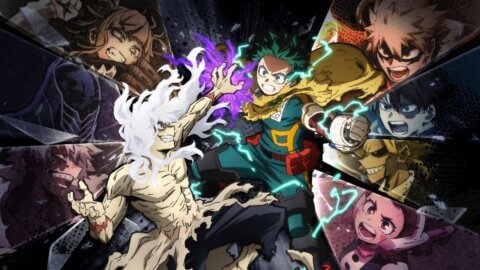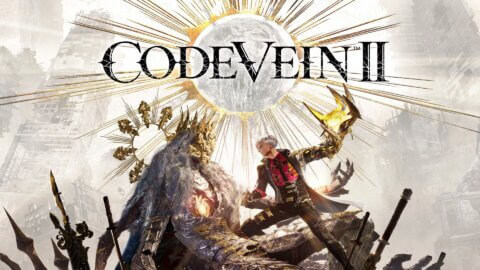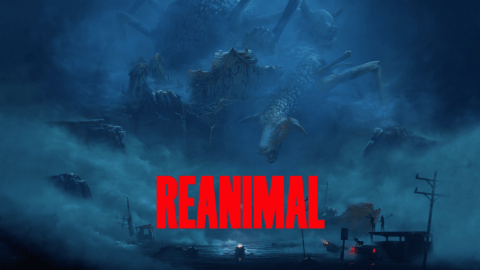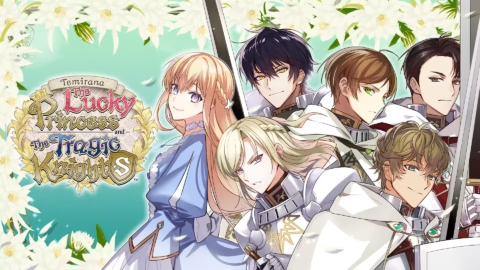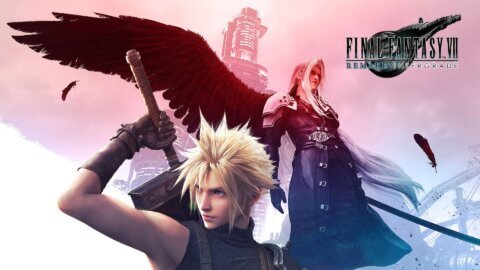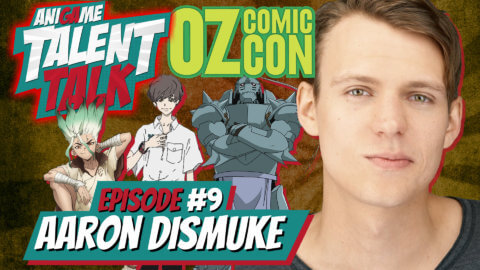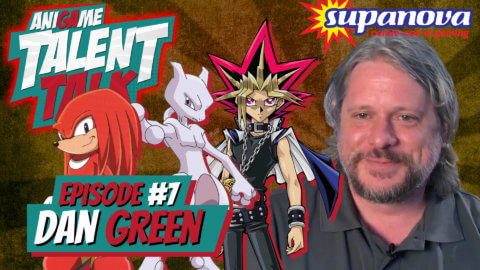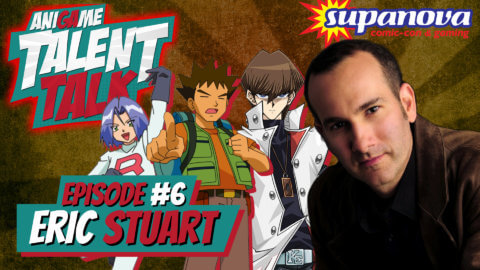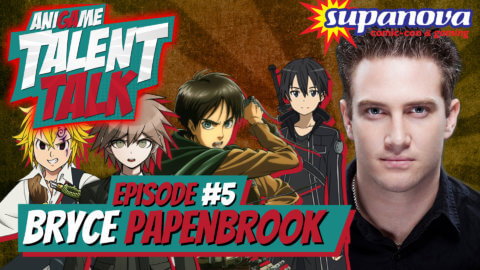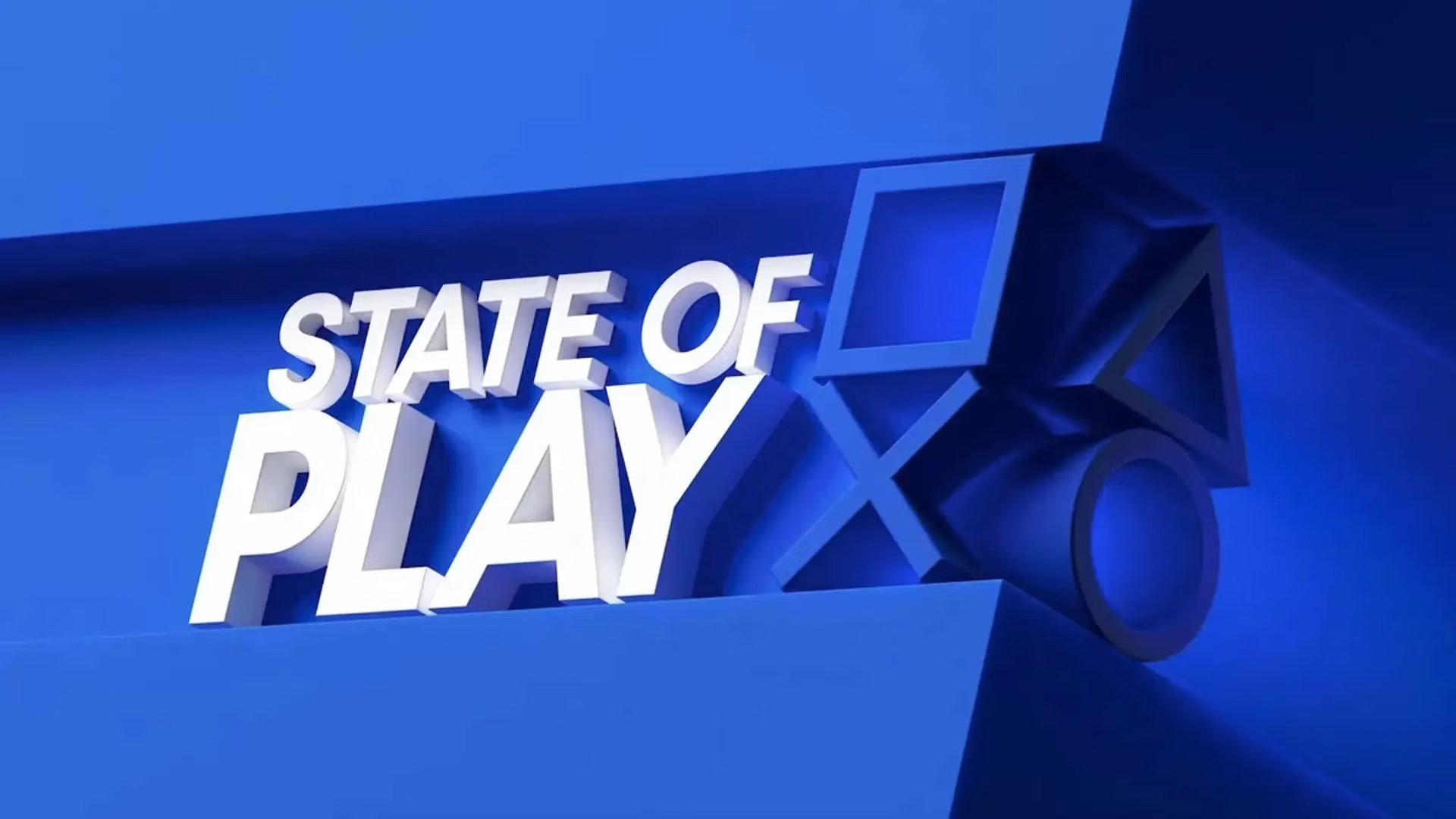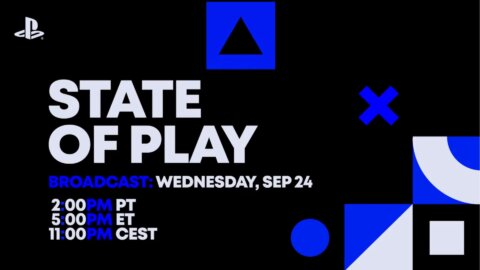For as long as I can remember, I’ve been a Prince of Persia fan. From the classic 2D side-scroller I played on my GameBoy to The Sands of Time trilogy, the series has always stood out as one of gaming’s most iconic platforming adventures. When Ubisoft announced The Rogue Prince of Persia, a roguelite title developed by Evil Empire, the studio best known for carrying the torch on Dead Cells, I was excited by what could come out of that matchup. I skipped the early access PC version that launched last year, partly because I wanted to experience the game at its fullest. But as someone who adores roguelites and has a deep soft spot for this series, I had a gut feeling this would be right up my alley. I wasn’t wrong. The Rogue Prince of Persia is one of the most addicting, fast-paced games I’ve played in 2025.

At its core, the game takes the classic Prince of Persia storytelling and remixes it into the roguelite framework. The setup is simple but effective: the Prince is fighting against the Hun invasion, a relentless force that feels unstoppable. His ace in the hole is the Bola, a mystical artifact that essentially resets time whenever he dies, resetting the timeline back to the point the Prince last slept. This clever plot device is what justifies the endless loops of roguelite gameplay, you’re not just failing and restarting for the sake of it, you’re actually bending time itself, trying again and again to prevent the Hun invasion and save the members of your family.
The Prince’s personality also shines through. He’s cocky but determined, and his banter with NPCs you encounter adds a lighthearted charm to the otherwise grim backdrop of war. The Bola isn’t just a narrative excuse, it’s a constant reminder that every run matters, every death carries weight, and every attempt pushes the story forward in some way.
The first thing that hit me when I started playing was just how fast this game is. There are times where you’re given very little to breathe, and I mean that as a compliment. Combat flows seamlessly into platforming, and before you realize it, you’re sprinting, wall-running, vaulting over enemies, and chaining attacks without stopping. It’s chaos at times, but always fun and challenging.
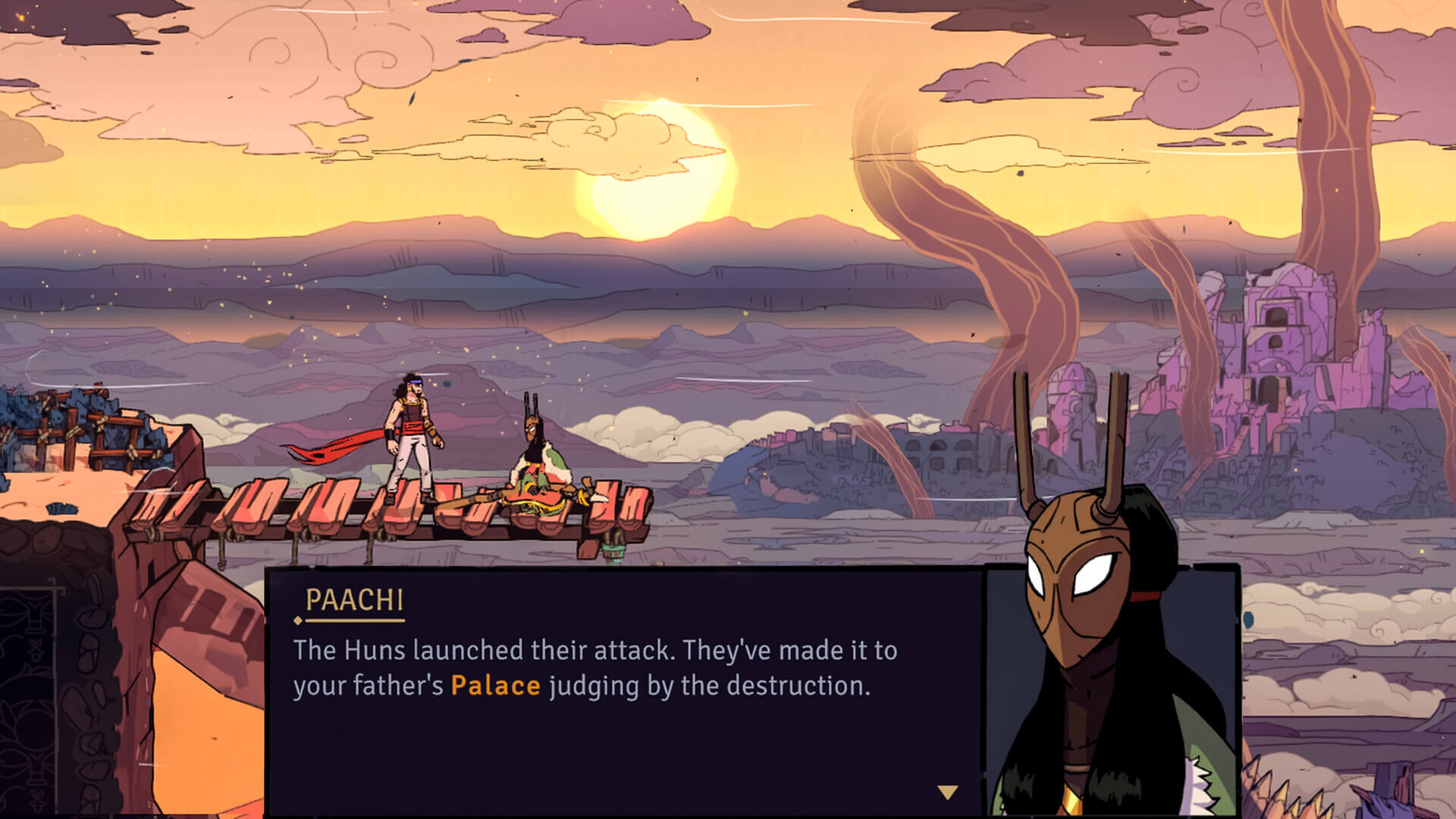
Of course, this wouldn’t feel like Prince of Persia without platforming challenges, and Evil Empire nailed it. Wall running is the star of the show. It’s not just a gimmick; it’s a core mechanic that adds both verticality and momentum to every encounter. Whether you’re dodging spike traps, leaping across collapsing platforms, or bouncing between walls to ambush enemies from above, the movement feels fluid and empowering. It’s the closest any Prince of Persia game has come to capturing that old-school thrill of “the floor is lava” but with modern speed and fluidity.
Like any good roguelite, the core loop revolves around making it further with each run. But what I really appreciated here is how progression always feels tangible. Even when you die, you’re moving forward in some way.
The Oasis hub is where most of this progression comes together. Every time you rescue a character out in the wild, they relocate to your hub and bring something new to the table. Perks, challenges, shops, or even quests. It makes each run feel purposeful, because you’re not just grinding for stats, you’re actively shaping a little community. It reminds me of what Hades did with its House of Hades, but with a distinct flair that gives the game its own personality.
Progression also extends to unlocking new weapons, medallions, and abilities. Each discovery opens up fresh strategies, and even after dozens of runs I was still unlocking things that changed how I approached combat. What’s more, new areas and entire stages become available over time. Instead of trudging through the same environments repeatedly, you get to choose branching paths, keeping the experience varied and surprising.
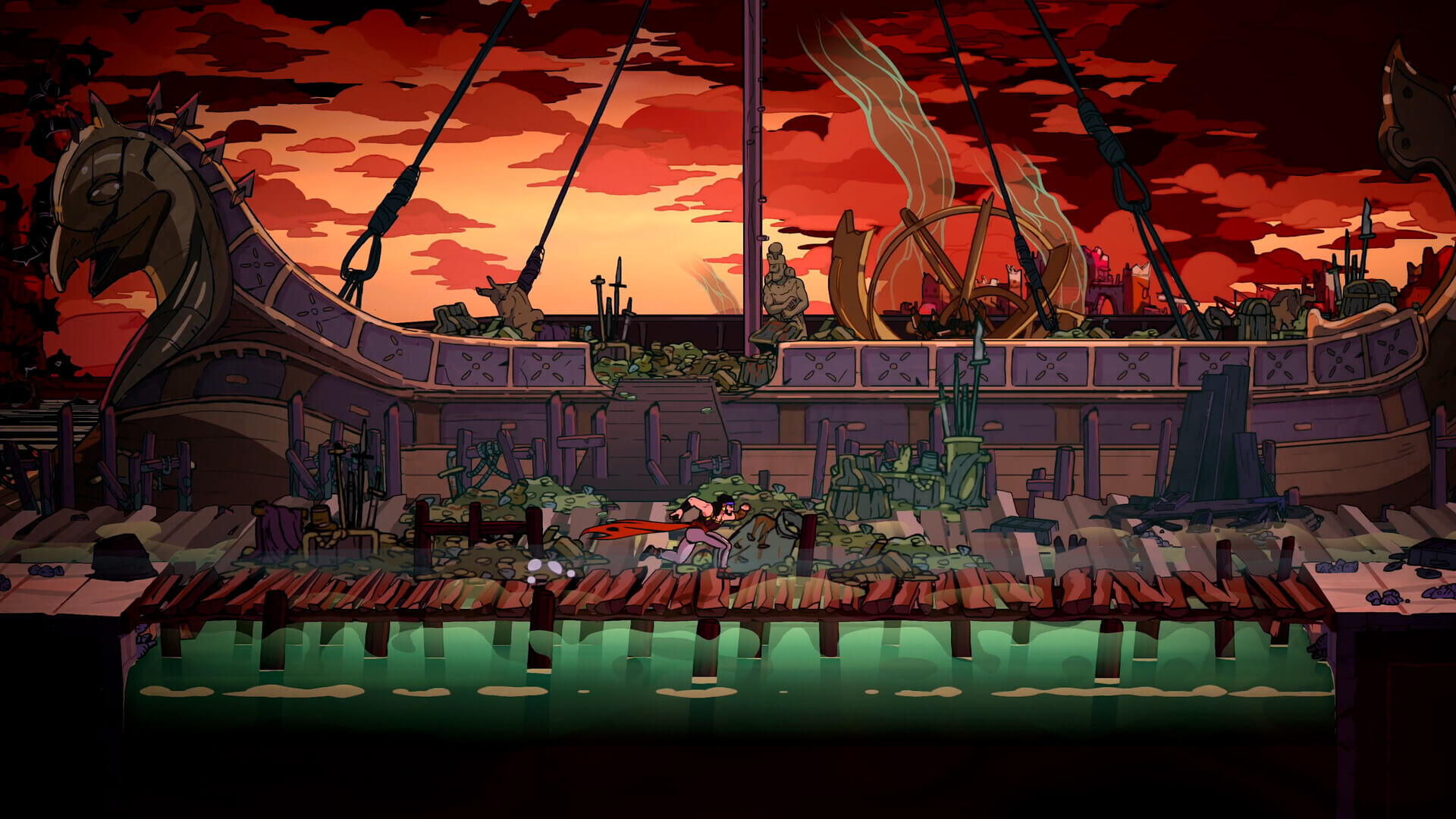
One feature I found surprisingly effective was the mindmap. It’s essentially a visual tracker of your goals across different loops. Instead of leaving you lost in a sea of half-finished objectives, it lays out what you’re working toward, whether that’s rescuing someone, reaching a certain stage, or unlocking locating a specific way past an obstacle. It’s a small quality-of-life feature, but it makes progression feel more structured and rewarding.
The skill tree ties neatly into this, offering a steady sense of growth. Unlocking upgrades doesn’t just make the Prince stronger, it often changes your playstyle. You might lean into agility-heavy builds, weapon-focused runs, or energy-first strategies depending on how you want to play. Getting to the point where you gain additional healing potions or the ability to cheat death once is a game changer. It’s flexible, and it keeps you experimenting.
The magic of The Rogue Prince of Persia is how quickly it turns into a “just one more run” game. The formula is tight. Dash through a stage, tackle traps and enemies, obtain or enhance your gear, choose a branching path, fight harder challenges, return to the hub, upgrade, repeat. It’s a cycle that feeds itself, and I lost hours at a time without even realizing it.
Every run has a sense of momentum. The combination of fluid platforming, fast combat, and meaningful rewards makes it hard to walk away. This is easily one of the most dangerously addicting roguelites I’ve played since Hades.
Combat is sharp and varied. The Prince has access to multiple weapon types, swords, spears, dual blades, bows, and each one feels distinct. Some emphasize speed, others raw power, and a few lean on ranged tactics. Pair these with medallions that add modifiers, and you’ve got a system that encourages you to experiment.
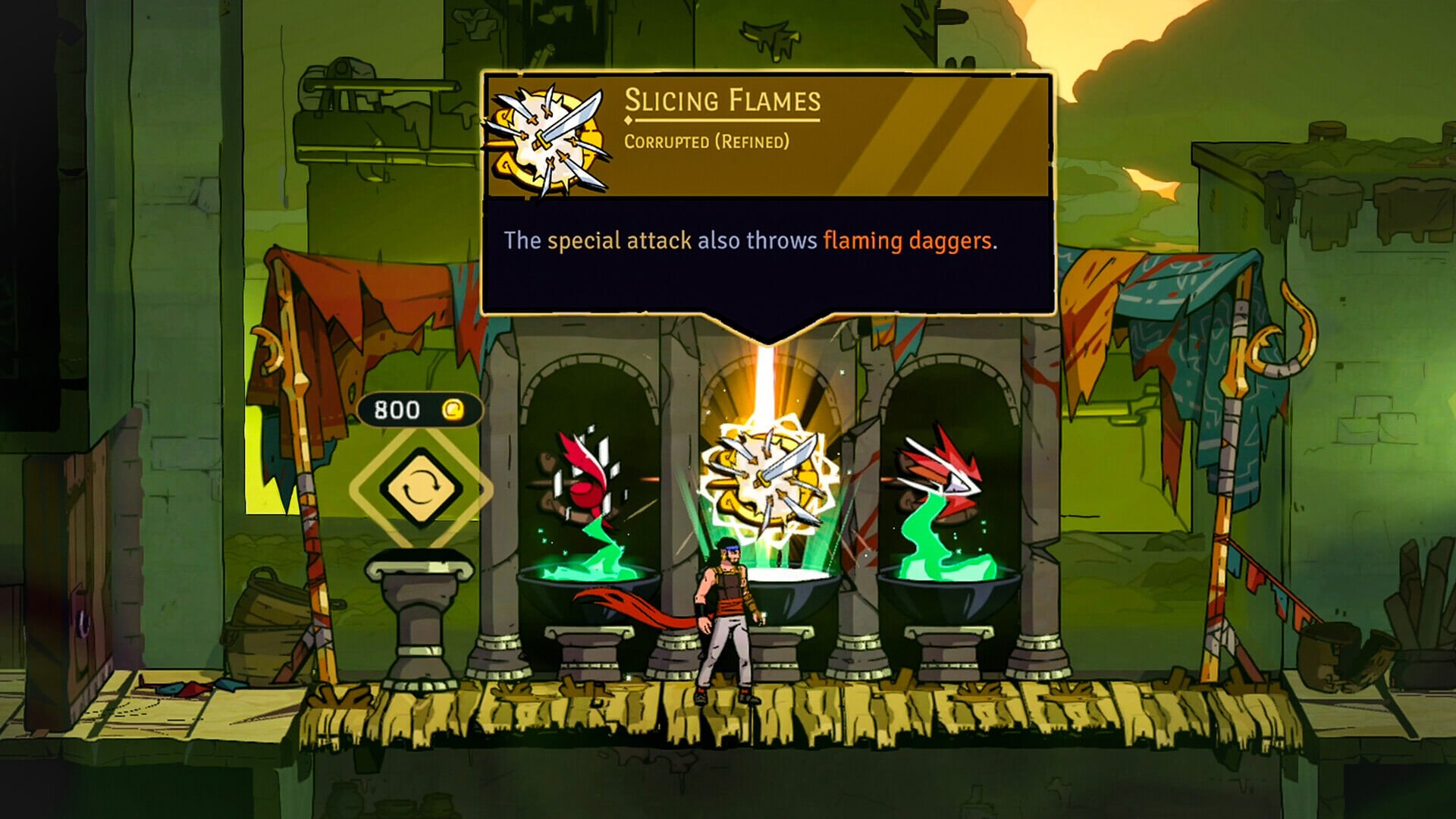
Enemies are just as varied. You’ll face standard Hun soldiers, shield-bearers, ranged attackers, and nastier surprises as you progress. Add to that environmental hazards like spike floors, swinging blades, collapsing platforms, and you’ve got constant unpredictability. No two encounters ever feel exactly the same, and the game never lets you go on autopilot.
Visually, the game carries the stylized look you’d expect from Evil Empire. It sits comfortably alongside roguelite peers like Dead Cells and Hades. The art direction doesn’t aim for realism, it leans into bold colors, sharp outlines, and a painterly style that fits the mythic tone. Animations are crisp, especially the wall running, which always looks slick. The soundtrack also deserves praise, blending traditional Middle Eastern instrumentation with modern energy, perfectly complementing the setting and the high-paced gameplay.
For all its strengths, my time on PS5 wasn’t without frustrations. The most glaring issue was loading times between stages. They regularly stretched to 20–30 seconds, which feels far too long for a game this fast-paced. In one instance, I had a load last over a full minute, which absolutely killed the momentum.
Worse still, I ran into two hard crashes upon dying in runs. The first was devastating, my save data was wiped, and I lost around seven hours of progress. Starting over from scratch in a roguelite is brutal, and while I eventually recovered, it soured the experience for a while. The second crash thankfully wasn’t as catastrophic since I could restore a cloud save, but it’s still a bad user experience. I’m hopeful patches will iron this out, but right now, these issues can’t be ignored.
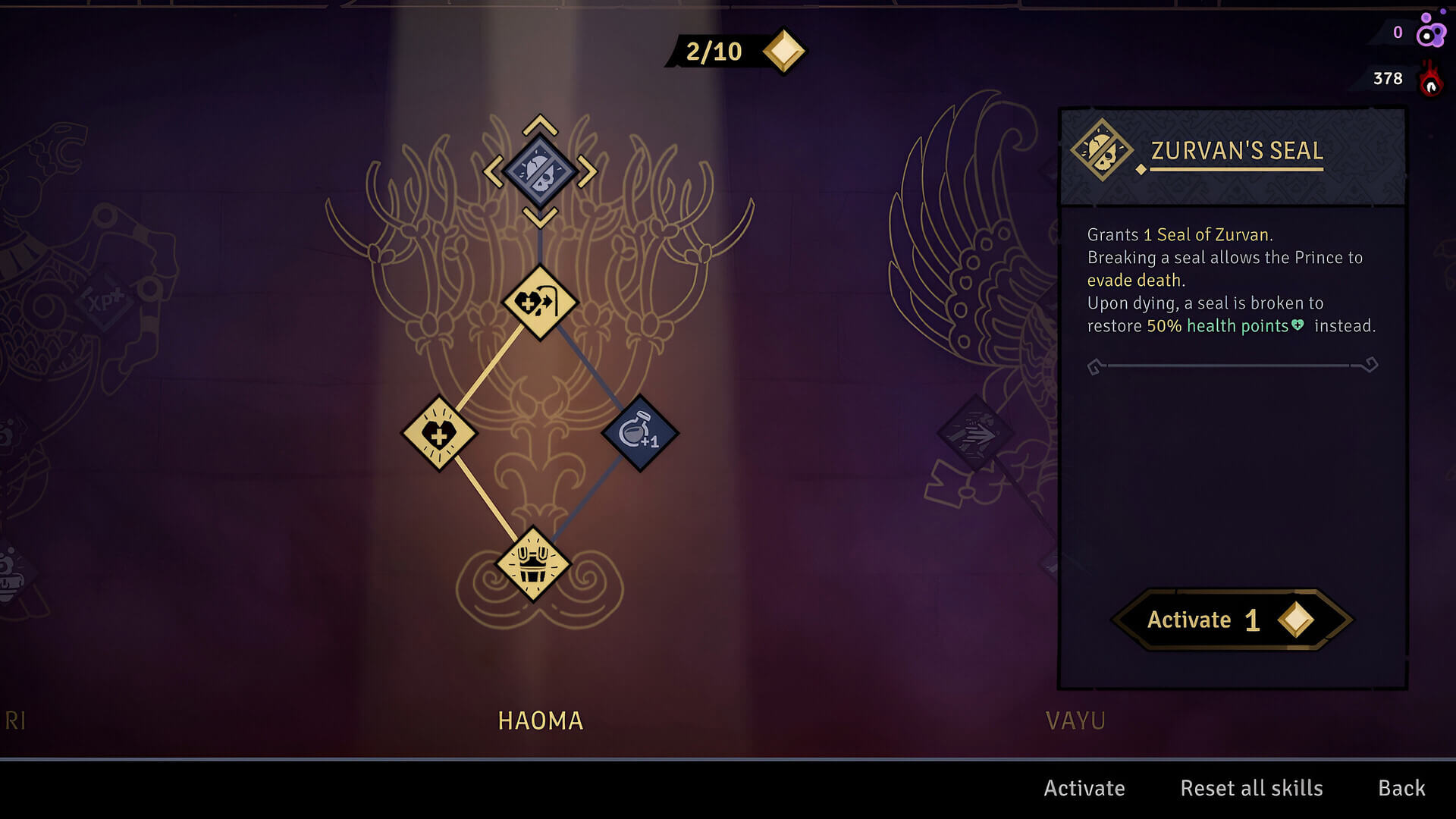
Final Thoughts
Despite the technical hiccups, The Rogue Prince of Persia on PS5 is an absolute blast. It’s the kind of game that keeps you up late telling yourself “just one more run.” Evil Empire has managed to respect the legacy of Prince of Persia while injecting it with the adrenaline of modern roguelites. The wall running, the combat, the branching progression, it all clicks together in a way that feels fresh yet faithful.
If you’re a fan of the series, or if you simply love roguelites that reward skill, persistence, and experimentation, this is a must-play. Yes, it needs technical polish. But when the gameplay loop is this good, it’s hard to stay mad for long.
Between this, and last year’s incredible Prince of Persia: The Lost Crown, it seems like the Prince is back. I just hope this encourages Ubisoft to give us more going forward from this amazing franchise.
A PS5 review code was provided by Ubisoft for the purpose of this review.
If you want to see more content like this and never miss one of our frequent gaming and anime giveaways come and Follow Ani-Game on Twitter.
9
- + A super addicting gameplay loop
- + Great progression pacing
- + Level design that complements the fast and fluid movement
- + Branching options that help each run feel fresh
- - Load times between levels are really long
- - Hard crashes that wiped save data
